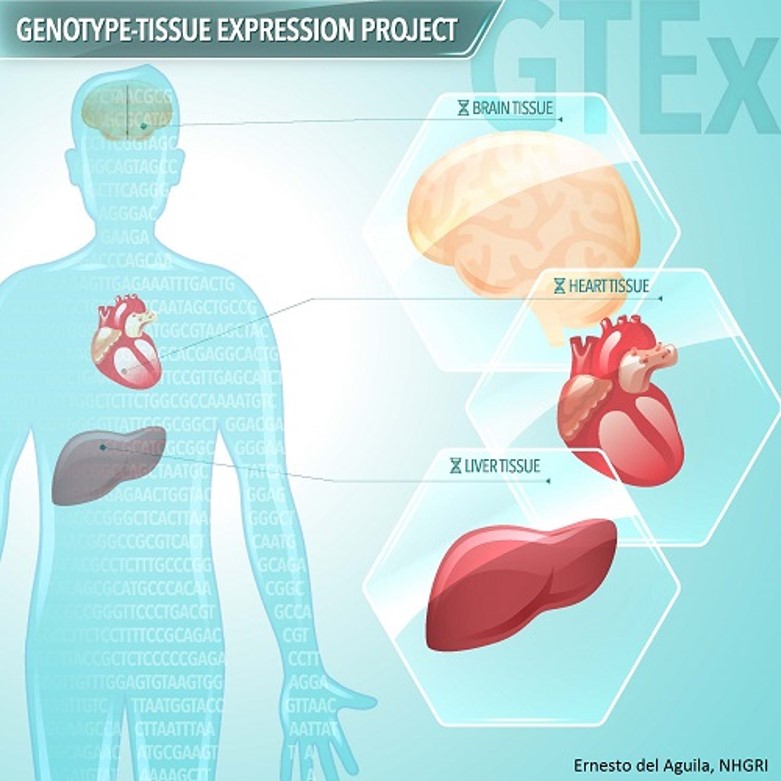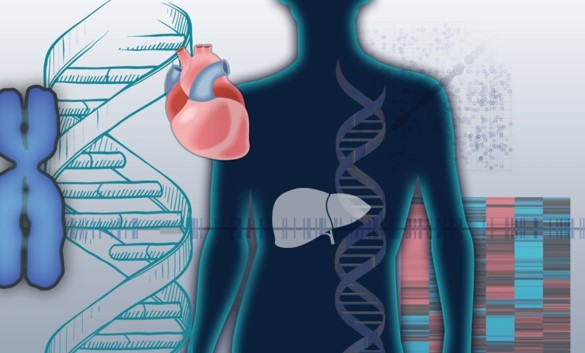Health Relevance
 Research studies have identified links between many genetic variants (a change in DNA sequence) and common diseases (e.g. cancer, diabetes, hypertension, Alzheimer's disease). We are now aware that genetic variants can regulate genes being turned on or off, which may contribute to complex diseases. However, which genes are turned on or off varies a lot in healthy people depending on which tissue type (e.g. heart, lung, brain, etc.) is being examined, and this makes it even harder to link a specific genetic variant to disease. The NIH Common Fund’s Genotype-Tissue Expression (GTEx) project has developed a reference data set for studying genetic variants and gene activity in multiple healthy tissues. This catalogue has stimulated research that will enrich our understanding of how differences in our DNA sequence contribute to health and disease, and make us different from everyone else. For example, GTEx researchers used the GTEx reference data set to design a statistical method called PrediXcan that estimates how much of gene activity (whether a gene is turned on or off) is due to differences in DNA sequence. PrediXcan then links this estimate with observable traits as a way to identify genes associated with disease. GTEx researchers used this method to identify specific genes associated with five diseases: bipolar disorder, coronary artery disease, Crohn's disease, rheumatoid arthritis and type 1 diabetes.
Research studies have identified links between many genetic variants (a change in DNA sequence) and common diseases (e.g. cancer, diabetes, hypertension, Alzheimer's disease). We are now aware that genetic variants can regulate genes being turned on or off, which may contribute to complex diseases. However, which genes are turned on or off varies a lot in healthy people depending on which tissue type (e.g. heart, lung, brain, etc.) is being examined, and this makes it even harder to link a specific genetic variant to disease. The NIH Common Fund’s Genotype-Tissue Expression (GTEx) project has developed a reference data set for studying genetic variants and gene activity in multiple healthy tissues. This catalogue has stimulated research that will enrich our understanding of how differences in our DNA sequence contribute to health and disease, and make us different from everyone else. For example, GTEx researchers used the GTEx reference data set to design a statistical method called PrediXcan that estimates how much of gene activity (whether a gene is turned on or off) is due to differences in DNA sequence. PrediXcan then links this estimate with observable traits as a way to identify genes associated with disease. GTEx researchers used this method to identify specific genes associated with five diseases: bipolar disorder, coronary artery disease, Crohn's disease, rheumatoid arthritis and type 1 diabetes.
 All GTEx data are publicly available at the GTEx Portal, which gives researchers everywhere access to the reference data set. Access to the data set will create new opportunities to study links between genetics and disease and to investigate possible advanced treatment options.
All GTEx data are publicly available at the GTEx Portal, which gives researchers everywhere access to the reference data set. Access to the data set will create new opportunities to study links between genetics and disease and to investigate possible advanced treatment options.



